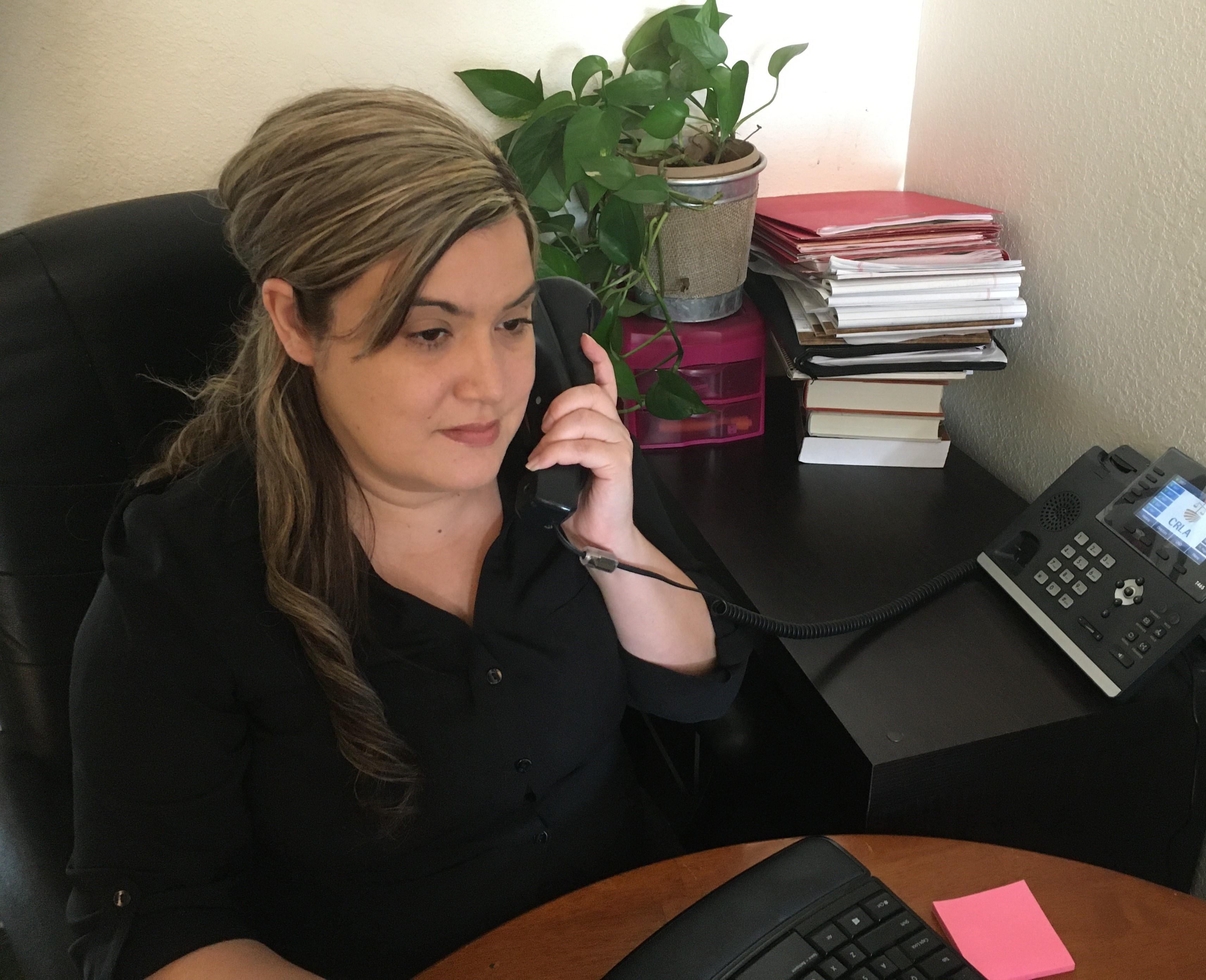
San Joaquin Valley nonprofits collaborate to feed residents in need
San Joaquin County, located just east of the nine-county San Francisco Bay Area, is an indicator of the state’s future. Understanding how urban and rural residents are faring during the current pandemic provides a road map to helping poor, young and ethnically diverse residents in California and other states.
The heart of San Joaquin County is the city of Stockton, which is located about 50 miles south of Sacramento, the state capital. Stockton is the most ethnically diverse large city in the U.S., with a 42 percent Hispanic population. Yet it is also one of the poorest areas in California, with an economy largely based around agriculture. About one in seven of households live below the federal poverty level while about one in three children are impoverished. The average life expectancies for Stockton and San Joaquin County lag several years behind that of the rest of California.
Although California’s overall population is aging, with over 20 percent of the state’s population set to be over the age of 65 by 2030, San Joaquin County’s population skews younger. Approximately 31 percent of residents are under the age of 20. Close to 47 percent of residents are between the ages of 20 to 54. It’s one of the few counties where housing is comparatively affordable, a fact that has attracted thousands of former residents of the Bay Area. In many households, at least one member commutes to the Bay Area for work. This adds to the county’s already problematic air quality.
In late March, as the novel coronavirus began to shutter places of employment and schools, the need to increase food aid to low-income households grew. San Joaquin County nonprofits, businesses and local officials quickly formed partnerships to strengthen the county’s support system. The cooperative efforts have resulted in a substantial increase in deliveries and safety measures.
Bread of Life, a Stockton-based nonprofit, has assisted by packing grocery boxes to deliver to households. The organization currently provides grocery assistance to Emergency Food Bank, St. Mary’s Dining Room, the Salvation Army, and Gurdwara Sahib Stockton.
“With so many people out of work, the need has grown so much. We’ve moved from a one-stop distribution center to a mobile Amazon-type delivery system. Now we have volunteers from different communities making home deliveries in their neighborhoods,” said Gina Valadez, president of Bread of Life.
Valadez said grocery boxes from Bread of Life go to residents of Stockton, Lodi, Tracy, Manteca,rural unincorporated areas of San Joaquin County, and the city of Merced, which is in Merced County.
Between mid March and mid April, Bread of Life officials say the nonprofit provided food to over 3,000 households, about triple the number normally served. Many of the clients are low-income families from the south side of Stockton.
Stockton City Councilmember Jesús Andrade, who represents this part of the city, said he personally assists Bread of Life with deliveries every Saturday. He has also seen other community leaders and volunteers help the organization pack and deliver boxes.
“People are in need and afraid to visit grocery stores. They’re very grateful. We are seeing an enormous amount of appreciation,” said Andrade.
Adjusting to change, with new partners
The change to Bread of Life’s operations required a drastic altering of its website. Now a user is asked to provide their name, address, gender, ethnicity, annual income, and email address. Bread of Life’s staff then create a queue to deliver food.
“We create a manifest organized by zip code. Our goal is to deliver a clean, packed food box within five days. We keep everyone safe with contactless delivery,” said Valadez.
Valadez said Bread of Life recently hired more staff and received a recent emergency grant from United Way to develop the new procedures.
Bread of Life receives assistance from a number of other nonprofits and businesses, including The Amelia Ann Adams Whole Life Center, PepsiCo, and Delta Bluegrass Company. In addition, numerous local officials have all made home deliveries for Bread of Life.
Tejpaul Bainiwal, a member of Gurdwara Sahib Stockton, said the Sikh community is currently delivering between 50 and 60 boxes a day across the county in cities from Merced to Lodi. Most of the deliveries are made to seniors and high-risk individuals. in Stockton.
“Each box contains $50 of groceries. Once Bread of Life heard what we were doing, they donated supplies to us. We’ve seen a huge increase in requests,” Bainiwal said.
Bainiwal said the Sikh community is also providing meals to medical workers at local hospitals in appreciation for their work.
“They’re battling in the frontlines to ensure our safety during this difficult time. This is the least we can do for them,” he said.
Helping children, seniors, and farmworkers
Since the pandemic began, the Salvation Army has seen requests for aid grow.
“We currently serve between 250 and 300 households a week. We have triple the amount of new first-time clients a week than before the pandemic,” said Lt. Juan Oregel of the Salvation Army Stockton Corps.
Oregel said the Salvation Army is delivering lunches to children who lack transportation to school distribution centers.
“We make lunches and deliver them twice a week to between 40 and 50 families who cannot get there. We’ve also delivered groceries to Silvercrest Apartments in Stockton, a complex that is home to many low-income seniors. They set up a free “store” so residents can easily pick up what they need,” Oregel said.
In addition, the Salvation Army has brought food to migrants living near French Camp, an unincorporated community in San Joaquin County.
“There are 150 farmworkers here. They live at two different sites for nine months out of the year to harvest crops. All we ask is for identification and proof of residence. We don’t request papers to prove they are documented. We try to accommodate every household,” Oregel said.
Some community nonprofits that did not have a primary focus on food aid have shifted their mission to provide necessities.
Fathers & Families of San Joaquin, a Stockton-based nonprofit, promotes the cultural, spiritual, economic and social renewal of vulnerable families in the greater San Joaquin Valley. The organization has developed a rapid response unit to provide immediate assistance with food.
“We are providing over 1,500 lbs. of rice, beans, pasta, other non-perishables, and hot meals to hundreds of families in Stockton on a weekly basis,” said Samuel Nuñez, Fathers & Families executive director.
“On May 1, 2020 alone, Fathers & Families of San Joaquin provided over $10,000 in rent and utility subsidies to undocumented families in San Joaquin County,” Nuñez said.
Nuñez added Fathers & Families has also provided over 100 new and expectant mothers with baby supplies. Three formerly incarcerated individuals who were experiencing homelessness also were given market-rate housing, he said.
“People keep calling us for support several times a day. We are barely scratching the surface,” said Nuñez.
Nuñez said COVID-19 has exposed inequities that have been in place for generations.
“We cannot continue to accept this as fact. We celebrate those who have donated from the abundance in their hearts to keep the community alive. Without (donors), this wouldn’t be possible,” said Nuñez.
Oregel said the Salvation Army has provided families with gas vouchers as well as arts and crafts activities, including coloring pages and colored pencils for children.
“We want to make things a little bit more fun because school has been canceled. Recently we got a donation of gingerbread house kits that we gave away. It’s not Christmas, but it made the day for those kids,” said Oregel.
Oregel said those who are interested in donating should contact nonprofits to learn what they can provide and how to share it.
“One of the positive things that’s happening now is we are building relationships. I’m getting calls from organizations I never heard from before. We’re seeing how we can divide and conquer. We’re getting things accomplished together,” said Oregel.
Related Posts

Stockton tenants seek help from city, nonprofits to prevent illegal evictions
Monica Sousa, directing attorney of the Stockton office of California Rural Legal Assistance, speaks with a client over the phone during the COVID-19 pandemic. Photo credit_ CRLA- Jul 06

Notaries Go Virtual During Coronavirus Crisis
It’s a mundane but necessary part of modern life. Whether it’s signing a will or buying property, most legal transactions require a notary to witness a document being signed in person. But under pandemic social distancing guidelines getting together with a notary in person is impossible so many states are allowing notaries to work online.- Jun 09
Recent Posts
Recent Comments
- Teresita on Stockton tenants seek help from city, nonprofits to prevent illegal evictions
- Maritza on Louisiana teacher holds virtual lessons for dyslexic students and pre-K children
- Emmett on Stockton tenants seek help from city, nonprofits to prevent illegal evictions
- Evalyn Gruninger on Stockton tenants seek help from city, nonprofits to prevent illegal evictions
- aqduwgw on Stockton tenants seek help from city, nonprofits to prevent illegal evictions
More Articles
2020 census count faces uncertain delays
- April 29, 2020





Comments (3)
zovrelioptor
Jul 21, 2021Hello There. I found your blog the usage of msn. This is a very well written article. I will make sure to bookmark it and return to read extra of your useful info. Thank you for the post. I will certainly return.
zortilonrel
Apr 15, 2021Really great visual appeal on this website , I’d rate it 10 10.
zortilo nrel
Apr 11, 2021I am continually looking online for tips that can aid me. Thank you!